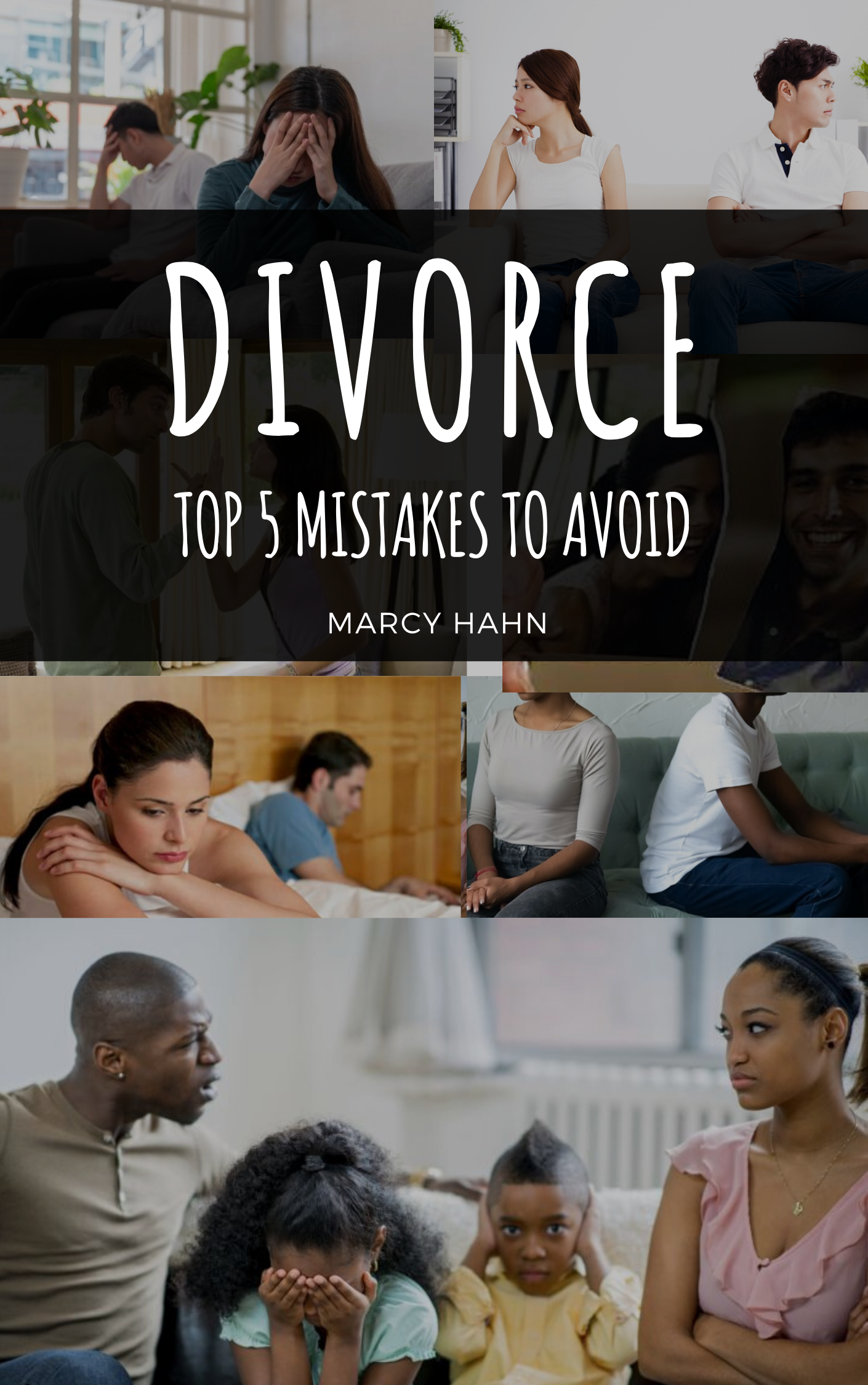
Overview
In this episode, Marcy Hahn welcomes special guest Carrie Cole to the show to discuss the workings of qualified domestic relations orders. Carrie is a certified financial planner and is trained in both domestic relations mediation as well as the collaborative legal process. With over 20 years of experience drafting and reviewing qualified domestic relations orders, Carrie’s expertise and advice regarding this process are not to be missed! Carrie has spent her career helping attorneys and clients in reviewing and analyzing divorce settlements, assisting with discovery, and providing expert witness testimony and trial support. Marcy and Carrie discuss the role of qualified domestic relations orders in the divorce process and why you may need one. Tune in to also hear common mistakes that are made during this process and how to safeguard your financial future by not making the same missteps during your divorce.
Learn More
Financial Planning & Domestic Relations
Marcy:
Welcome, Carrie, and thank you for joining us.
Carrie:
Thank you for having me.
Marcy:
So what is a qualified domestic relations order? And why would somebody getting divorced need one?
Carrie:
A qualified domestic relations order, or Quadro for short, is the document that would divide a qualified plan, a retirement plan, like a pension, a 401K, or 457 plan. It does not apply to IRAs. But this document is necessary if you would like to receive a distribution from your partner’s retirement plan from work.
Marcy:
Okay, and what are some of the key questions that somebody getting divorced where they know there’s a pension asset that’s going to need to be divided? What are some of the key questions clients should be thinking about?
Carrie:
What’s really important is, first of all, gathering information and gathering statements. With pensions, especially, those are so tricky. You should actually have your pension information even before you start negotiating. We just did one for a client and we had to negotiate after the judgment was signed, because it was so tricky. But the big thing is to get your statements and try to figure out what you want. If you’re getting a pension, there’s certain ways to divide the pension, some work for certain circumstances, and some don’t work for certain circumstances. And with 401Ks everyone thinks that they’re straightforward, but they’re not. You have to think about do you want to cash out with the stock market being the way it is? Or do you want gains and losses? So I believe that the Quadro negotiation should begin almost immediately.
Marcy:
Okay, and what is the timeline for a Quadro?
Carrie:
That depends on how well prepared everyone is. I’ve seen quadros take a year. I’ve seen quadros take 30 days. Normally what happens is the decision gets made in the judgment. You hire the Quadro person, usually about 10 days to draft. Everyone signs and reviews, maybe another week, and then it goes off to court. And it comes back and then it goes out to the Quadro company or the plan. And that can take 30 to 60 days. So I would say if you were doing a Quadro you might want to plan on no less than 60 days, possibly 90.
Marcy:
And how does someone figure out what they need be entitled to? So I have a lot of clients who come and they know that their spouse has a pension. They don’t have a pension and they don’t really understand how to measure what they may be entitled to or what the marital share may look like. Can you explain what the marital share looks like to be divided and how somebody would go about deciding what they may be entitled to under the pension?
Carrie:
Right. And that’s why getting a Quadro person involved right from the beginning is so helpful. I happen to be a little bit prejudiced because our firm we have five Quadro people, and I realized that if it’s a legal document, attorneys need to be involved. But this also is a financial asset, with a pension. There are marital years, you want to be able to take this pension prior to somebody retiring. You know, take it early. If the alternate payee as we call them, or let’s say the spouse starts taking the pension and they die, what happens? Does it bounce back to the participant? There are all these questions. And that’s why it’s so important to start the dialogue early.
Marcy:
And how is it determined whether you are able to continue to receive a benefit after your spouse, who was the primary recipient of the pension, passes away? Is it possible that you could outlive your former spouse and then continue to receive benefits under the plan? Or is that something that will automatically cease? Once your spouse has passed away?
Carrie:
Well, it depends most of the time. That’s why you want to get the Quadro done, and have it done, hopefully at the time of divorce so that you become a survivor spouse. We have many situations, for example, as somebody has been divorced for a while and the participant or the retiree has taken the pension out over their lifetime only. And if that Quadro isn’t done, as soon as that participant dies, the Quadro dies, the payments die. And that’s why you want to grab it early so that you can put it in survivorship provisions.
Marcy:
So can you be a surviving spouse under a Quadro even if your former spouse remarries someone else after your divorce?
Carrie:
I would say most of the time, yes. There are some quirky plans out there. For example, when I’m calling it the alternate payee, that’s the spouse that’s receiving the pension benefit, there was language in there that they couldn’t get remarried. But yes, it depends on how it’s written up. The new spouse should be entitled to something as well, later on down the road. But yes, it’s all in how it’s written.
Marcy:
Okay. So that’s one of the other issues, I guess that needs to be thought about during the drafting process. What are the some of the mistakes that you see people make regarding Quadros? And how can those mistakes be avoided?
Carrie:
So I would say there are so many mistakes, it’s unbelievable. The first thing is you’ve got to get them done. I have one right now from 30 years ago, and he’s already collecting his pension and she could have had those payments. She forgot about it. I had another person who was actually, a friend of mine, she forgot about hers. And this was a 401K he withdrew the money and went into and bought a retail franchise. So you’ve got to get them done. Timeliness is everything. And if you don’t have that Quadro done, and that participant dies the day after the divorce, you might be out… and I had a case like that where it was a fidelity plan, and she never notified the plan that a Quadro was pending. And they said we’re sorry, we didn’t know you didn’t put us on notice. And there’s nothing we can do. So I would say get the Quadro started, and I would put the plan on notice and there are ways to do that.
And then I would start the dialogue with the Quadro person with human resources. This is an area where your divorce attorney can really either help or hurt you. I think because so often once the divorce judgment is entered. You know, I think that the both the individual litigants and unfortunately sometimes the attorney says okay, we’re done that case is over. Let’s move on. And sometimes there needs to be some follow up after the judgments entered to make sure that all the provisions of the divorce judgment are effectuated. So whether it’s needing a quitclaim deed to property or entering a Quadro, obviously these are very important steps that still have to be taken even after your divorce judgment is entered. We find that the Quadro seems to be done last. And then when we start drafting the Quadro we find that the judgment language doesn’t match. We find that the judgment is either too vague or we find that the judgment is trying to award something that they can’t have. And now, after the judgment, everybody has to come back to the table. And sometimes there has to be an amendment, a motion filed to change the language. And that’s why if you can start the dialogue early, it’s helpful. And then you can make sure at least in a perfect world that the judgment of divorce language matches and is clear about the intent of the parties, and then that intent can more easily probably be carried out in the Quadro later.
And I’ll give you an example… union plans. Most union plans, the spouse or the alternate payee cannot have the money until the main spouse retires. And there are so many people said, Well, I was expecting a lump sum from the annuity. Nope, can’t have it until they either separate from service, don’t work for the union anymore, or retire.
Tune in to the episode to hear the rest of my insightful interview with domestic relations mediation expert, Carrie Cole.

Here’s a Free Gift from Marcy
Top 5 Divorce Mistakes to Avoid by Marcy Hahn
ONE Lucky Person that Downloads the FREE Gift WILL WIN a Free 90-Minute Session with Marcy Herself!
